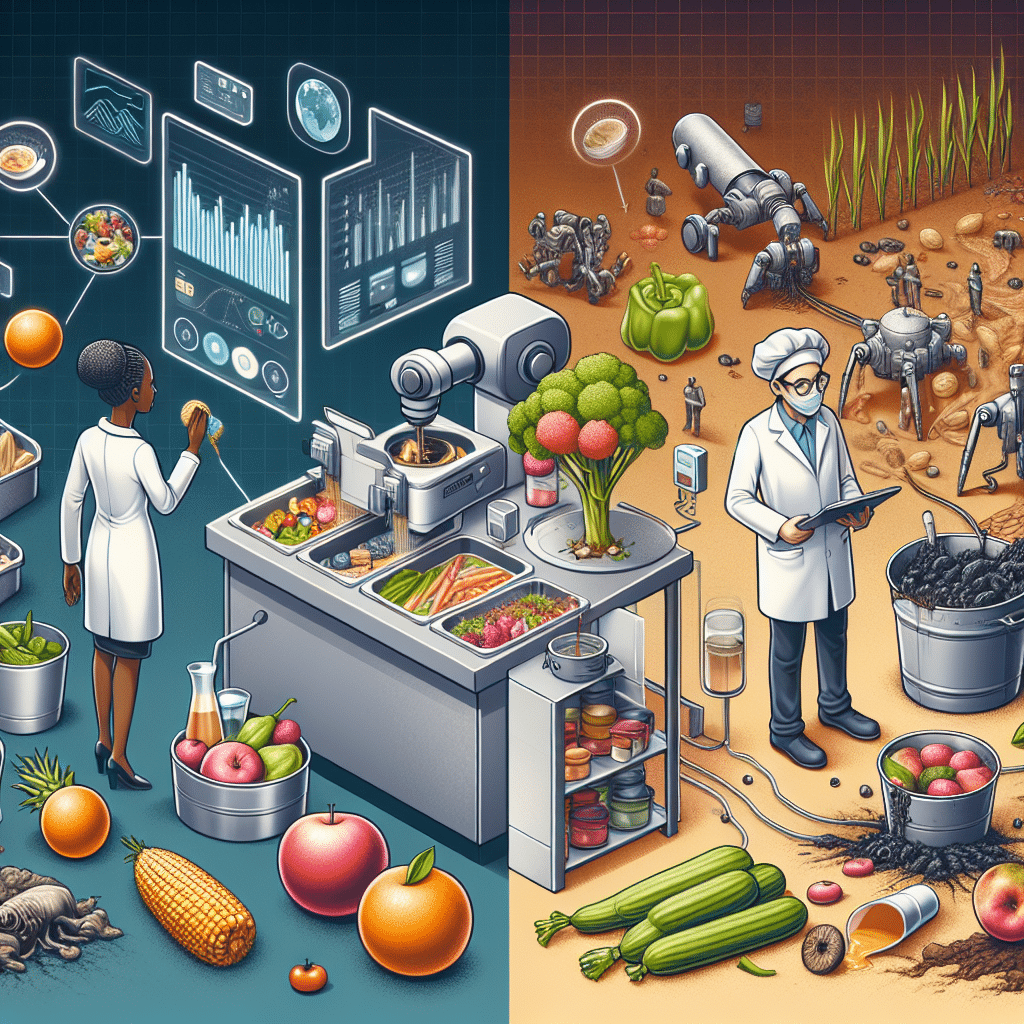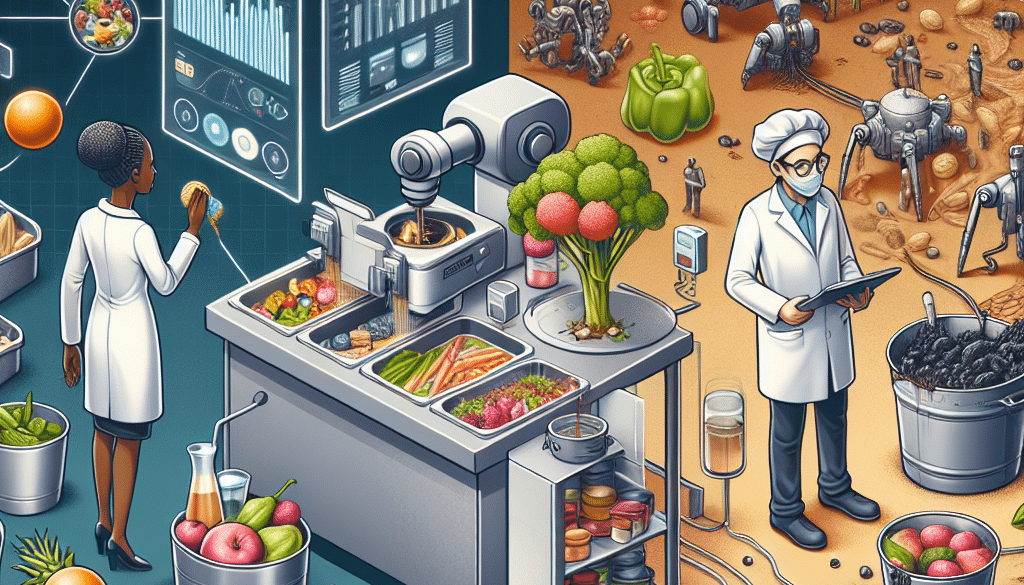The Food Industry: Trends And Challenges
Table of Contents
- Food Industry Trends and Challenges: Navigating the Future
- Emerging Trends in the Food Industry
- Challenges Facing the Food Industry
- Adapting to Consumer Demands
- Technological Innovations Shaping the Future
- Conclusion: The Road Ahead for the Food Industry
- ETprotein: Meeting the Demand for High-Quality Protein Products
Food Industry Trends and Challenges: Navigating the Future

The food industry is a dynamic and ever-evolving sector, influenced by a myriad of factors including technological advancements, consumer preferences, and global economic conditions. As we delve into the current landscape, it’s essential to understand the trends shaping the industry and the challenges that businesses face. This article will explore these aspects, providing valuable insights and statistics to offer a comprehensive overview of the food industry’s trajectory.
Emerging Trends in the Food Industry
The food industry is witnessing several key trends that are reshaping the way food is produced, distributed, and consumed. Here are some of the most significant trends:
- Health and Wellness: Consumers are increasingly seeking out healthier food options, with a focus on organic, non-GMO, and nutrient-rich products. The global health and wellness food market size was valued at USD 733.1 billion in 2020 and is expected to grow at a compound annual growth rate (CAGR) of 6.4% from 2021 to 2028.
- Plant-Based Alternatives: The rise of veganism and concerns about animal welfare and environmental sustainability have led to a surge in plant-based food products. The plant-based meat market alone is projected to reach USD 35.4 billion by 2027, growing at a CAGR of 15.8% from 2021 to 2027.
- Food Technology Innovations: Technological advancements such as lab-grown meat, precision fermentation, and blockchain for food traceability are revolutionizing the industry.
- Sustainability Practices: With climate change concerns, there is a push for sustainable farming practices, reduced food waste, and eco-friendly packaging.
- Personalized Nutrition: Advances in genomics and AI are enabling more personalized dietary recommendations, leading to customized food products.
Challenges Facing the Food Industry
While the industry is ripe with opportunities, it also faces significant challenges that must be addressed to ensure long-term sustainability and growth:
- Supply Chain Disruptions: The COVID-19 pandemic has highlighted vulnerabilities in the global food supply chain, with disruptions causing shortages and increased costs.
- Food Safety Concerns: Outbreaks of foodborne illnesses and contamination incidents continue to pose risks, necessitating stringent safety protocols.
- Regulatory Compliance: Navigating the complex web of food regulations across different markets can be challenging for businesses.
- Changing Consumer Behaviors: Keeping pace with rapidly changing consumer preferences requires agility and innovation from food companies.
- Competition and Market Saturation: The food industry is highly competitive, with new entrants and products constantly vying for market share.
Adapting to Consumer Demands
Consumer preferences are a driving force behind many of the trends in the food industry. To stay relevant, companies must adapt to these demands:
- Transparency: Consumers want to know where their food comes from and how it’s made, leading to greater transparency in labeling and sourcing.
- Convenience: Busy lifestyles have increased the demand for convenient food options, such as meal kits and ready-to-eat products.
- Experience: Food is not just about sustenance; it’s also about the experience. Thus, companies are focusing on creating unique and memorable eating experiences.
Technological Innovations Shaping the Future
Technology plays a pivotal role in addressing the challenges and capitalizing on the trends within the food industry:
- Automation and Robotics: Automation in food processing and packaging can improve efficiency and reduce labor costs.
- Artificial Intelligence: AI can optimize supply chains, predict consumer trends, and enhance food safety measures.
- Vertical Farming: This innovative farming method can produce food in urban environments with a smaller ecological footprint.
Conclusion: The Road Ahead for the Food Industry
The food industry is at a crossroads, with exciting trends offering opportunities for growth and innovation, while significant challenges require strategic and thoughtful responses. Companies that can adapt to changing consumer demands, leverage technological advancements, and implement sustainable practices will be well-positioned to thrive in this competitive landscape. The key takeaways for businesses in the food sector are to stay informed, be adaptable, and always prioritize the needs and preferences of the consumer.
ETprotein: Meeting the Demand for High-Quality Protein Products
In line with the trend towards health and wellness, ETprotein offers a range of high-quality protein products that cater to the growing demand for plant-based and allergen-free options. Their extensive selection of organic proteins, including rice, pea, and various seed proteins, provides manufacturers with the ingredients needed to create nutritious and sustainable food products. With a commitment to non-GMO and purity standards, ETprotein is an ideal partner for businesses looking to innovate in the health-conscious market.
About ETprotein:
ETprotein, a reputable protein and L-(+)-Ergothioneine (EGT) Chinese factory manufacturer and supplier, is renowned for producing, stocking, exporting, and delivering the highest quality organic bulk vegan proteins and L-(+)-Ergothioneine. They include Organic rice protein, clear rice protein, pea protein, clear pea protein, watermelon seed protein, pumpkin seed protein, sunflower seed protein, mung bean protein, peanut protein, and L-(+)-Ergothioneine EGT Pharmaceutical grade, L-(+)-Ergothioneine EGT food grade, L-(+)-Ergothioneine EGT cosmetic grade, L-(+)-Ergothioneine EGT reference grade and L-(+)-Ergothioneine EGT standard. Their offerings, characterized by a neutral taste, non-GMO, allergen-free attributes, with L-(+)-Ergothioneine purity over 98%, 99%, cater to a diverse range of industries. They serve nutraceutical, pharmaceutical, cosmeceutical, veterinary, as well as food and beverage finished product distributors, traders, and manufacturers across Europe, USA, Canada, Australia, Thailand, Japan, Korea, Brazil, and Chile, among others.
ETprotein specialization includes exporting and delivering tailor-made protein powder and finished nutritional supplements. Their extensive product range covers sectors like Food and Beverage, Sports Nutrition, Weight Management, Dietary Supplements, Health and Wellness Products, and Infant Formula, ensuring comprehensive solutions to meet all your protein needs.
As a trusted company by leading global food and beverage brands and Fortune 500 companies, ETprotein reinforces China’s reputation in the global arena. For more information or to sample their products, please contact them and email sales(at)ETprotein.com today.












